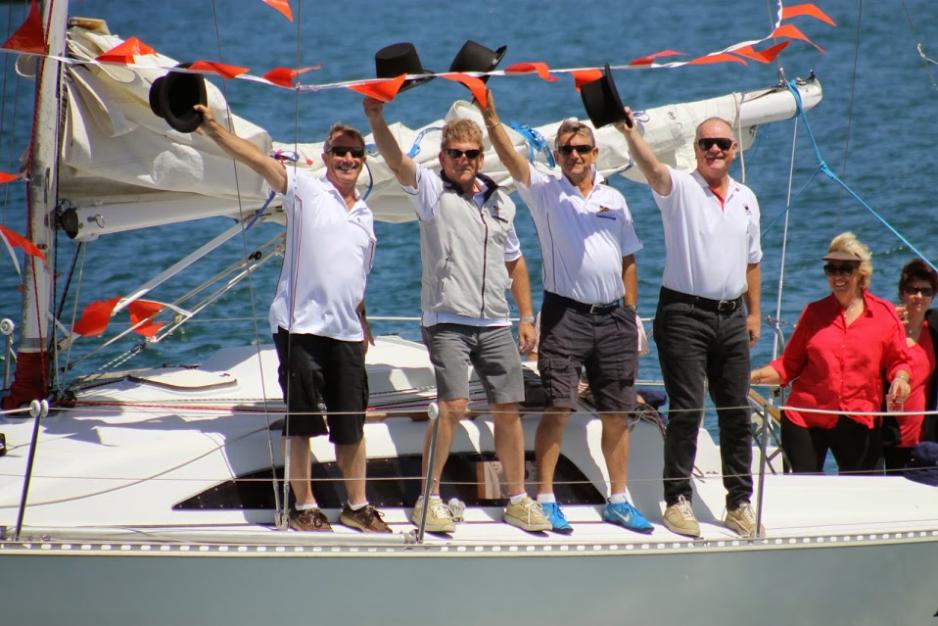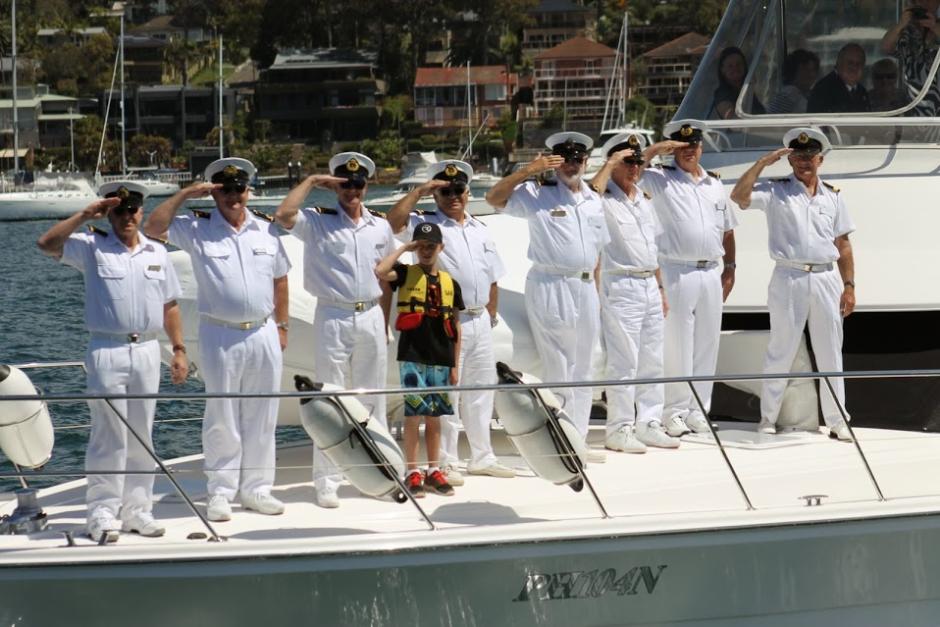October 19 - 25, 2014: Issue 185
88th Grand Opening Day of the Royal Motor Yacht Club - Broken Bay 2014 – 2015 Boating Season
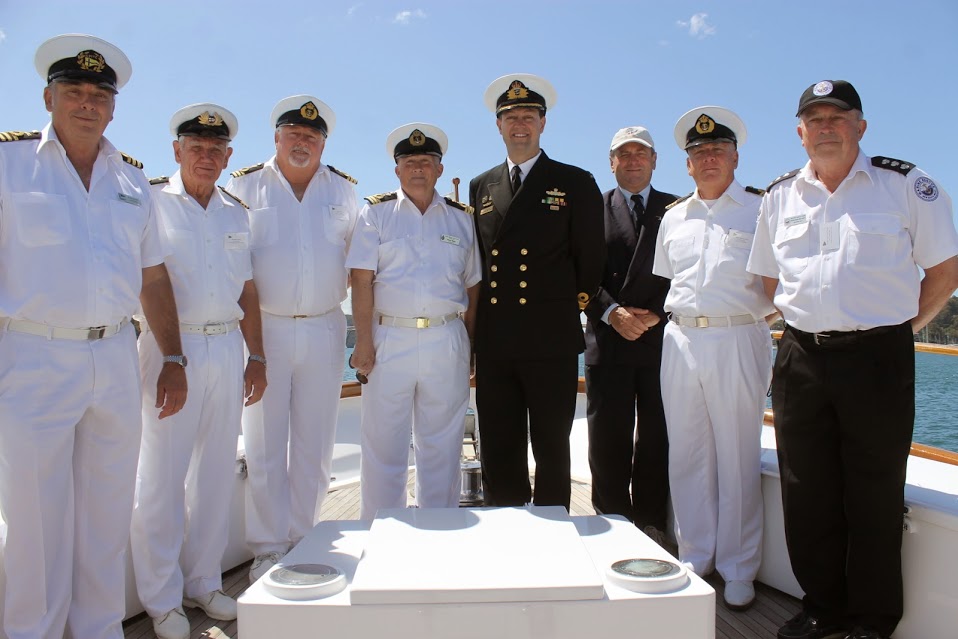
88th Grand Opening Day of the Royal Motor Yacht Club - Broken Bay 2014 – 2015 Boating Season
A large fleet of wonderful motor yachts, sail yachts and representative vessels from the NSW Water Police, Marine Rescue NSW and even the wonderful Blue Peter saluted the Broken Bay Royal Motor Yacht Club’s newest Life Member, Commodore Peter Haig and Royal Australian Navy Commodore Peter Leavy alongside the Commodores of St George Motor Boat Club, Robert Taylor, The RMYC Port Hacking Commodore Peter Lay, Kuring-Gai Motor Yacht Club Commodore Philip Alchin, Royal Sydney Yacht Squadron Commodore Richard Chapman, Commodore of the RMYC Point Piper, John Barbouttis and Keren Muir-McCarey, Unit Commander of Marine Rescue Broken Bay during Saturday the 18th of October Official Opening of the RMYC Broken Bay’s Boating Season.
As the fleet headed out onto Pittwater all dark clouds cleared, a fresh breeze picked up to move yachts from the RMYC, Royal Prince Alfred Yacht Club and Avalon Sailing Club in an on water display that epitomised what the estuary is about – smart sailing by experienced sailors.
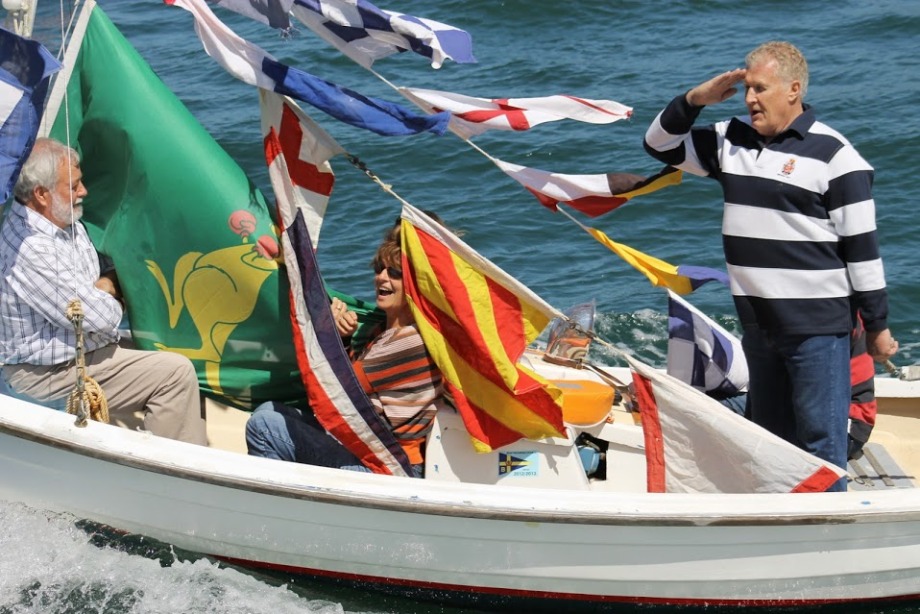
Vice Commodore Chris Lee opened proceedings this year by welcoming Deputy Mayor of Pittwater, Kylie Ferguson and Councillors Julie Hegarty, Ian White, Sue MIllar representing Pittwater Council, Councillor Sue Heines, Deputy Mayor of Warringah Council, all visiting Flag Officers, RMYC Directors, past Commodores, Life Members and Members and Guests. Vice Commodore Lee communicated the apologies of Club Patron, the Honourable Bronwyn Bishop, MP, Speaker of the House of Representatives and Member for Mackellar, Councillor Jacqueline Townsend, Mayor of Pittwater, Mark Ferguson, General Manager of Pittwater Council, Commodore Graham Parr of RMYC Toronto, Commodore Ian Audsley of the Royal Prince Alfred Yacht Club, Commodore John McCuaig, Middle Harbour Yacht Club, and Commodore Darrin Stollznow, of BYRA.
Commodore Peter Haig greeted all present and after thanking all for attending the Opening of the 88th Boating Season celebrations, began his introduction of 2014’s Guest of Honour, Commodore Peter Leavy (RAN), by sharing a very impressive abridged resume of Commodore’s Leavy’s career.
Commodore Leavy joined the Royal Australian Naval College in 1984 and transferred to the inaugural graduating year of the Australian Defence Force Academy in 1986. After initial Seaman Officer training, he was posted to USS Brewton and HMAS Hobart for Phase 2 training before completing his Phase 3 training and joining the commissioning crew of HMAS Westralia.
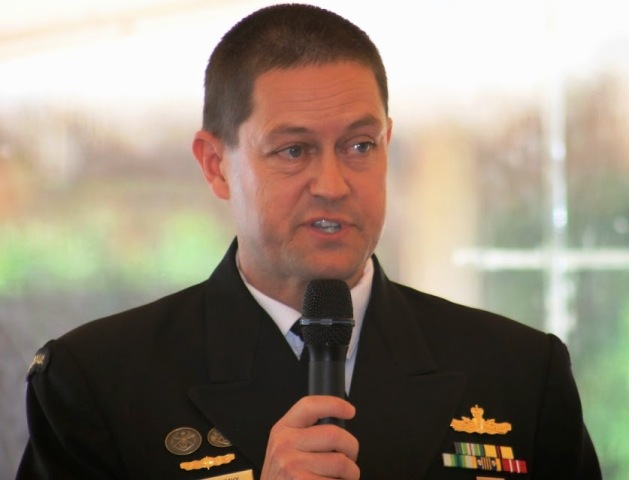 After being awarded his Bridge Watchkeeping Certificate, he was posted to HMAS Perth where he served as an Officer of the Watch before commencing Principle Warfare Officer (PWO) training in 1993. After graduation, Commander Leavy served as a PWO in HMAS Swan before completing PWO Phase 2 training in 1995 and then being posted as the Anti Submarine Warfare officer in the commissioning crew of HMAS Anzac. In 1998 Commander Leavy assumed duties as the Officer in Charge of the RAN Tactical Electronic Warfare Support Section at HMAS Albatross, where he was involved in support to ADF operations in East Timor. Following this posting, he joined HMAS Darwin as the Executive Officer in April 2000.
After being awarded his Bridge Watchkeeping Certificate, he was posted to HMAS Perth where he served as an Officer of the Watch before commencing Principle Warfare Officer (PWO) training in 1993. After graduation, Commander Leavy served as a PWO in HMAS Swan before completing PWO Phase 2 training in 1995 and then being posted as the Anti Submarine Warfare officer in the commissioning crew of HMAS Anzac. In 1998 Commander Leavy assumed duties as the Officer in Charge of the RAN Tactical Electronic Warfare Support Section at HMAS Albatross, where he was involved in support to ADF operations in East Timor. Following this posting, he joined HMAS Darwin as the Executive Officer in April 2000.
In January 2002 he completed the Australian Command and Staff Course, graduating with a Masters of Management (Defence Studies). In January 2003 he posted to Navy Headquarters in Canberra as the Deputy Director Future Maritime Warfare, but soon after arriving was seconded as the Chief of Staff to Commander Task Group 633.1 operating in the North Arabian Gulf during OPERATION FALCONER (Iraq). He was subsequently awarded a Chief of Defence Force Commendation for his service during this conflict. Commodore Leavy returned to Navy Headquarters on completion of this secondment and in 2004 and was selected to command HMAS Stuart (FFH 153). He joined Stuart in May 2005 and completed a wide range of activities, including EXERCISE RIMPAC and visits and exercises with a number of other Pacific and South East Asian nations. He then assumed duties as the Director of the Sea Power Centre - Australia upon promotion to Captain in January 2007. In 2008 he commanded HMAS Sydney.
Commander Leavy holds a Bachelor of Science (Hons), Master of Arts (Maritime Policy) and a Master of Management (Defence Studies). Ashore Commodore Leavy has served as the Director of the RAN Sea Power Centre in addition to postings in strategy and personnel areas within Navy Strategic Command in Canberra. Commodore Leavy is currently Commodore Warfare and Deputy Fleet Commander at Fleet Headquarters in Sydney.
Commodore Peter Leavy (RAN) gave the opening address this year and filled his tribute to Newport’s RMYC with historical references that underlined the key support this club has given to our community for decades through many changes and the many links between our Royal Australian Navy throughout the evolution of both.
We share here a few extracts from his address:
We have had, since both the Royal Motor Yacht Club and the Royal Australia Navy were formed, both well over one hundred years ago, many points on which we have met. As many of here you know the RMYC was formed on the 6th of July 1905 when a group of Motor Boat Owners formed what was then known as the Motor Boat Club, which was only the second of its kind in the British Empire.
The Royal Motor Yacht Club of Broken Bay was originally a branch of the Royal Motor Yacht Club at Rose Bay and while the clubhouse was being built on this very site in 1927, a great distinction was conferred upon the Motor Yacht Club when His Majesty King George the fifth allowed the use of the prefix ‘Royal’, the very same title that was granted to the Royal Australian Navy in 1911.
The concept of using experienced motor yachtsmen as an Auxiliary Service to the Navy was an idea that the British explored at the turn of the last century, and during both World Wars, British and Allied servicemen who had marine or yachting experience, were taken out of the ranks and often placed in small ships service. This was a particularly valuable concept for Australia, given that we have over 12 thousand miles of coastline.
During World War I the Royal Motor Yacht Club suspended sporting activities and focused their attention on the entertainment and the rehabilitation of soldiers who had been invalided home from the Great War.
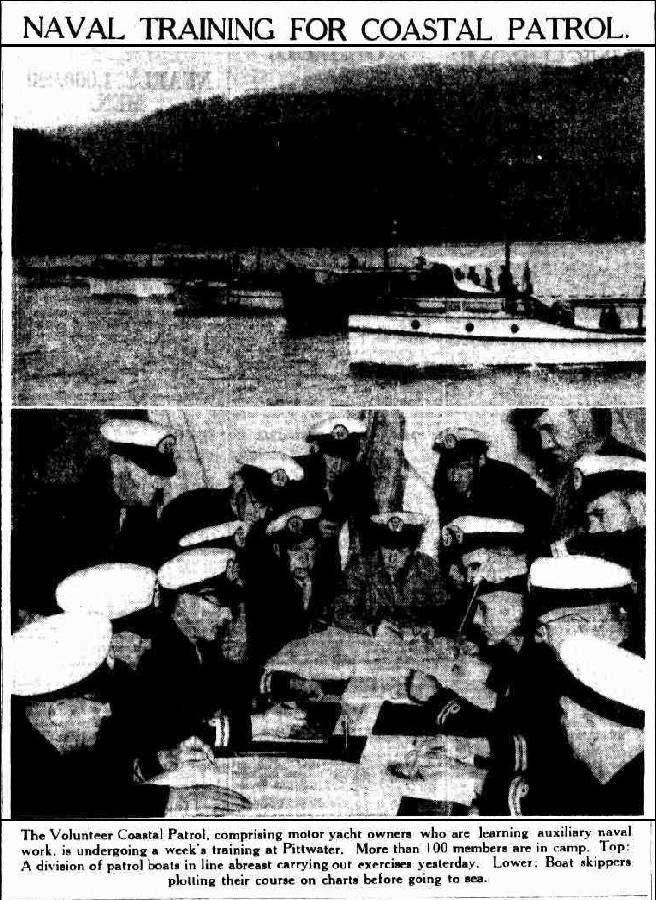 During the 1930’s a recommendation was made to the Naval Board that a coastal patrol services should be established to meet anticipated and coming hostilities. This was approved and the Volunteer Coastal Patrol was created in March 1937.
During the 1930’s a recommendation was made to the Naval Board that a coastal patrol services should be established to meet anticipated and coming hostilities. This was approved and the Volunteer Coastal Patrol was created in March 1937.
With training taken from the Admiralty Courses, with many club members joining and donating the use of their boats to the Volunteer Coastal Patrol. Many of their instructors were from the RAN who donated their time to training members.
Right from: COASTAL PATROL. (1938, July 9). The Sydney Morning Herald(NSW : 1842 - 1954), p. 19. Retrieved from http://nla.gov.au/nla.news-article17478958
Once war was declared in 1939 the Navy sought to engage the VCP to serve their country and were immediately informed they would serve in any capacity identified. Activities were conducted, such as the Hawkesbury River Bridge Defence and Patrols and Protection Task and these men were trained in fire-fighting, air raids, oil spillage and general security. So this club has a proud history of serving our nation.
Just as one example, in 1938 over 100 members moved up here to Broken Bay for eight days of intensive training on signals, aircraft recognition, boat handling and security patrol duty.
The VCP were also involved in Sydney harbour when a Japanese midget submarine attacked and sunk HMAS Kuttabul with the loss of 21 sailors. The Royal Motor Yacht Club boat Serenade was also involved in that action and sunk at the same time.
So the links between your Club, and your Navy, are very very strong indeed.
On further example that I was personally involved in illustrates the length of this association. I was very fortunate to be involved in the International Fleet Review that took place on Sydney harbour last year.
The Fleet Review commemorated the centenary of the Royal Australian Navy’s first fleet unit arriving in Sydney. Those seven ships, the first Australian owned and paid for fleet, sailed into Sydney harbour on October the 4th, 1913. They were greeted just inside the heads by members of your club who had gone out to greet them.
That greeting was repeated exactly one hundred years later, on the 4th of October 2013. this give us all a really good example of the tight knit relationship that your club and the Navy has.
I hope you can see from that abbreviated history that the support that your club has given towards the defence of Australia and the Navy over the last hundred years has been excellent. It is support that we really value and has been critical in many ways.
Obviously the people, the vessels, the expertise provided in wartime is a clear example, but I think a less obvious but probably just as important example of how you continue to contribute, is in the maintenance of what I would call a maritime culture, a nautical way of thinking. It is very important for a country like Australia that it does have a maritime way of thinking – we are an island, a maritime nation and it is vital that we remind the vast population of Australia to value this and that this is our reality.
Since European settlement we have relied totally on the sea for our economic prosperity and for our security. The First Fleet obviously arrived by sea, and during the first decade of our European nation here shipping was the absolute lifeline.
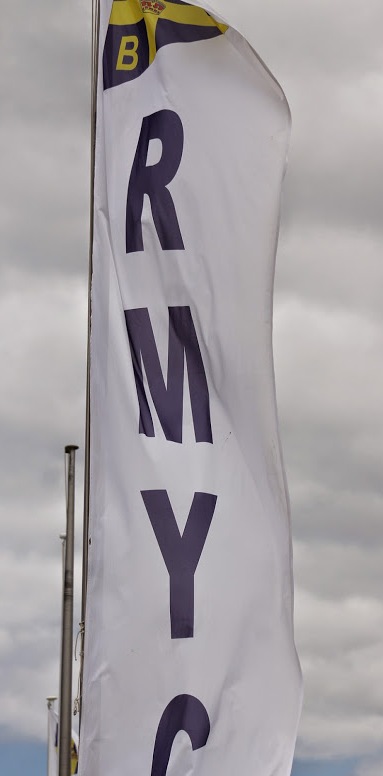 The arrival of ships into Sydney was a major event and all food, supplies, mail, settlers and even convicts that arrived by sea were critical for our nations survival. As our country matured we became more self-sufficient, but we do rely on exports for our national earnings. We became, and we remain to this day, a trading nation. Almost all of that trade travels by sea.
The arrival of ships into Sydney was a major event and all food, supplies, mail, settlers and even convicts that arrived by sea were critical for our nations survival. As our country matured we became more self-sufficient, but we do rely on exports for our national earnings. We became, and we remain to this day, a trading nation. Almost all of that trade travels by sea.
While that reality has not changed, many of the experiences of the Australian people, and therefore their perception has – we no longer travel by sea, we travel by air. Harbours used to be in the middle of cities and in fact cities grew up around their harbours. That is not the case anymore; we’ve moved our working harbours away form our population centres and out of the public’s mind. The bulk of our population does not have regular exposure to anything maritime and therefore the importance of the sea to Australia is lost on many and is fading from our public consciousness in my view.
That clearly is not the case here today. It is very refreshing to be around fellow Australians and fellow mariners who have a genuine affinity for the nautical life. It’s great to spend time with people who choose to spend their time on and around the water and keep our maritime heritage and maritime traditions alive, and have fun doing it.
Our ability to use the sea is a lot like using hot water or electricity at home – it’s ubiquitous, it’s necessary and completely out of mind until it’s not there; when the power goes off we get very focussed on fixing it. This is why I would ask you to discuss with your family and friends how vital our use of the sea is to Australia and how much better off we will be if we continue to remind ourselves our sea lanes and trade links are integral part of what is still a maritime nation.
My final point I would like to make is how struck I was and reminded in driving up here today with how beautiful this part of the world is. From Jervis Bay through to Sydney Harbour up here to Broken Bay and up to the Central Coast, we’ve been blessed with some of the best natural environments and maritime waterways in the world. Coming form someone who hails from Western Australia, and has sailed all over the world, that’s actually saying something.
I would like to thank you Commodore Haig for your kind invitation to join you here today and extend my thanks to your Members and guests for allowing me to join you here today. I trust you will all have a memorable, enjoyable and rewarding 2014- 2015 Boating Season - I wish you all fair winds and following seas - and with that I have great pleasure in officially declaring the 2014-2015 Royal Motor Yacht Club Boating Season open!
Thank you vey much.
Vice Commodore Lee asked for the cannon to be fired to make the declaration official and then called upon the Honourable Rob Stokes, Member for Pittwater, to respond on behalf of the Members and guests and give a vote of thanks.
A few extracts from Hon. Rob Stokes address;
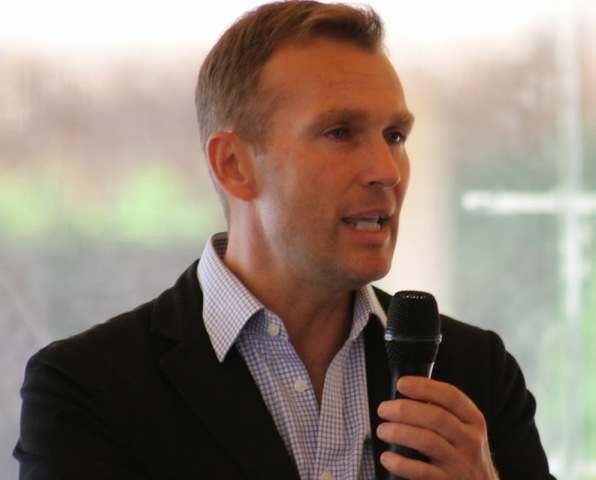 Commodore Leavy has described to us the need to embrace and to recognise and to always remember that we are a maritime nation and that we need to continue to foster and incubate a maritime culture. I’m please to inform you Commodore Leavy that here in Pittwater that is something that is close to all of our hearts. Pittwater is built around the sea and our economy is very much a saltwater one.
Commodore Leavy has described to us the need to embrace and to recognise and to always remember that we are a maritime nation and that we need to continue to foster and incubate a maritime culture. I’m please to inform you Commodore Leavy that here in Pittwater that is something that is close to all of our hearts. Pittwater is built around the sea and our economy is very much a saltwater one.
Many of the businesses that are supported by the Pittwater include great clubs like the Royal Motor Yacht Club, a club that provides so much employment and opportunity and so much social and cultural value to all of us who live in Pittwater. Our maritime roots are something that we hold very dear.
I recall that it was another and former Naval officer, John F. Kennedy, who stated “All of us have in our veins the exact same percentage of salt in our blood that exists in the ocean, and, therefore, we have salt in our blood, in our sweat, in our tears. We are tied to the ocean. And when we go back to the sea - whether it is to sail or to watch it - we are going back from whence we came.”
I would thank you for reminding us today Commodore Leavy for reminding us of this today of our vital conection to our seas. I would also like to take the opportunity today to thank all of our Service people who literally contract themselves to serving us, to protect us, to the extent that they are even prepared, should the case arise, to offer their own lives in service of us. That is something we should all always remember and be respectful of and always be grateful for.
I would like to thank you very much Commodore Leavy on behalf of all of us here and on behalf of all of the community of Pittwater for honouring us with your words on the Opening of the 88th Year of the Boating Season here at the Royal Motor Yacht Club of Broken Bay.
Vice Commodore Lee asked Past Commodore and RMYC Life Member David Hinton to lead those assembled in the National Anthem. Mr. Hinton’s verve, flair and passion in leading all should be recorded so others may hear his voice.
The prayer for the season and Blessing of the Fleet was given by Rev. Ric Bollen prior to those mustered heading out onto the estuary for the traditional Sail Past and salute.
A wonderful opening for the Royal Motor Yacht Club – Broken Bay 2014- 2015 season!
_______________________________________
Pittwater Online News has loaded a Photo Gallery of the Boat Parade and Salute HERE for those who wish to get a few pictures to keep for their own Family Albums and we share some of the wonderful sights from this year's Grand Opening as Issue 185's Pictorial
